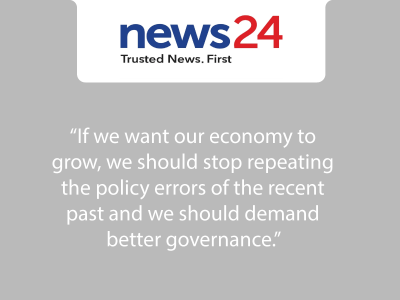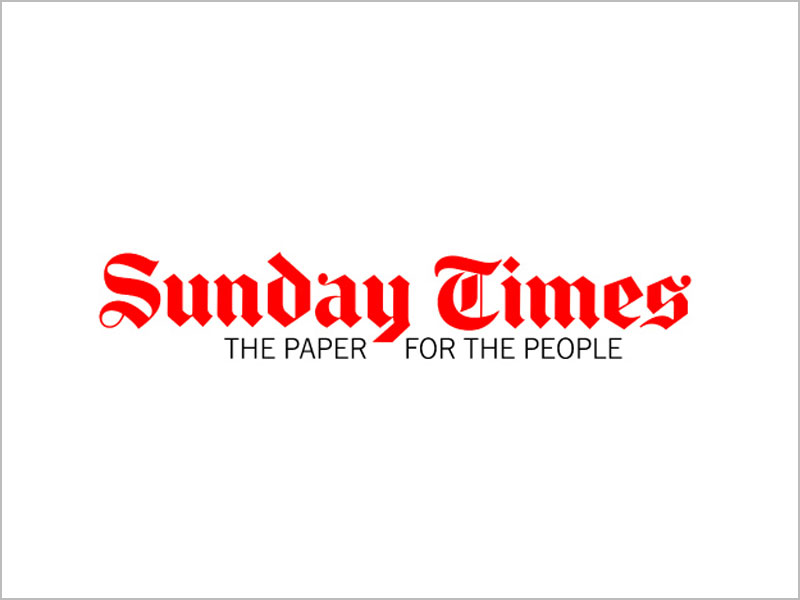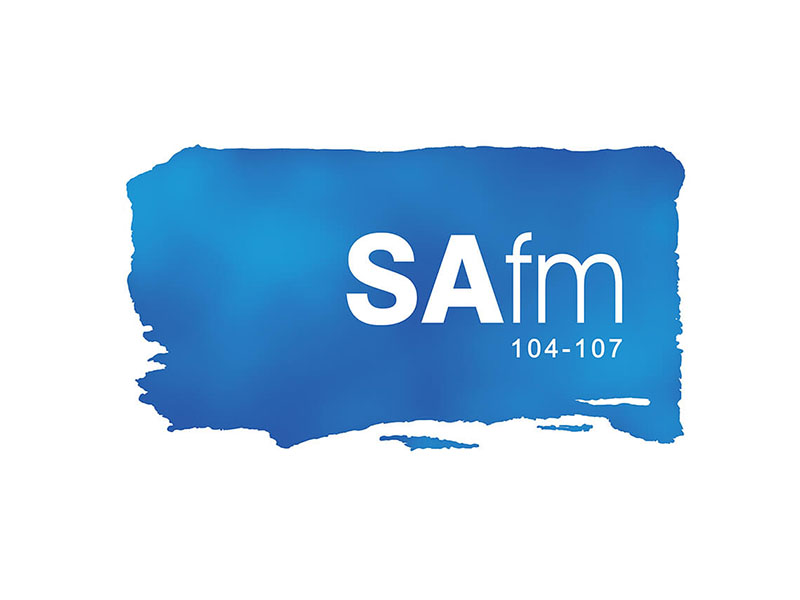SA’s economy going nowhere slowly

If we want our economy to grow, we should stop repeating the policy errors of the recent past and we should demand better governance, argues Ann Bernstein.
President Cyril Ramaphosa proclaimed in Parliament last week:
“We need first and foremost to grow the economy and create jobs”
Few people in South Africa will disagree with this statement. But words are not enough.
Saying things that people want to hear is what our president is good at. Taking the necessary action to make good on those promises? Not so much. And this is where our government falls tragically short. Indeed, despite the rhetoric contained in the president’s speeches, he does not have a growth strategy at all. If anything, the real outcome resembles what you might expect from an anti-growth strategy.
This week, the Centre for Development and Enterprise (CDE) released a new report called: South Africa’s Anti-Growth Strategy: How poor policy and bad governance are wrecking SA growth, which describes the dire growth performance of the economy over the past 15 years. We conclude that slow economic growth is overwhelmingly the result of bad policy choices, a catastrophic decline in government performance coupled with a devastating lack of leadership. Thus, not only does the government not have solutions to weak growth, it is itself a brake on growth.
Poor governance and bad policy are intimately related, and much too little has been done to address them. Indeed, in many domains, we continue to make the same mistakes over and over again.
So, how have bad policy and governance undermined growth? What follows is a quick summary of 10 important examples.
* Poor policy and bad governance at Eskom
Inadequate energy-supply is South Africa’s most critical constraint on growth. We do not have enough generating capacity to keep the economy running to its existing capacity. Maintaining Eskom’s monopoly has meant that its collapse through corruption, incompetence and cadre deployment has had catastrophic implications for the whole country.
* Fiscal policy
Stated commitments to spending restraint and debt stabilisation have been violated in practice, whether in the form of excessive wage increases for the public sector or unfunded commitments to free higher education and expansion of social grants. As a result, public debt has increased nearly eight-fold from around R630 billion in 2007 to nearly R4.7 trillion in 2023. This has led to a steep rise in debt service costs, which absorb a rapidly rising share of tax revenues and diverts them from more productive uses. High levels of public sector borrowing also raise interest rates for everyone, reducing investment.
* Corruption
The Zondo Commission found that the state paid over R57 billion to firms through corruption-tainted contracts to entities associated with the Guptas. Unfortunately, the extent that corruption has moderated under Cyril Ramaphosa is an open question. What is certain is that corruption continues to take place. Worse, there remains a real risk of state capture 2.0 emerging in the future, the prospect of which has significant effects on firms’ willingness to undertake risky investments.
* Crime and stability
South Africa’s criminal justice system has become less effective over the past decade. Murder – the category of crime best reported and recorded – has risen by almost 60%. The events of July 2021 have exposed the fragility of public order in South Africa. This, too, has huge implications for levels of confidence and investment, especially since no ringleaders have been brought to book. How confident can one be that this will not happen again?
* Logistics and Transnet
Poor logistics systems means higher costs for customers, inconvenience and a brake on SA exports. Transnet’s monopoly on port management and railway infrastructure explains why its services have declined and costs have risen – to the detriment of South African businesses, consumers and the economy as a whole.
* Mining
Mining revenue is stagnating because of uncertainty about the future trajectory of tax policy, the level and rigidity of wages, and an empowerment model that has increased investment risk. Licensing delays have resulted in a slowdown in investment projects, while mismanagement of the sector overall has meant that South Africa is an increasingly undesirable destination for mining companies seeking to expand their output.
* Decaying public infrastructure
There has been severe underinvestment in passenger rail, wastewater systems, roads, water infrastructure and state facilities such as schools, police stations, courtrooms, home affairs’ offices and hospitals. A key commonality underlying all of these trends is the government’s cadre-deployment strategy. This has seen the appointment of wholly unsuitable people into key organisations mandated to provide and maintain infrastructure while also saddling them with an unconstitutional conflict of interest: it is impossible to serve the interests of the ANC and fulfil one’s fiduciary duties to the public organisations they head.
* Local government
Only 41 of SA’s 257 municipalities received clean audits in 2020/21, while the Department of Cooperative Government and Traditional Affairs declared that 64 were “dysfunctional”. With respect to economic growth, one of the key effects of the declining quality of local infrastructure has been to raise the costs of doing business.
* BBBEE and localisation
Two government policies aimed at economic transformation – broad-based black economic empowerment and industrialisation-through-localisation – have inhibited growth. Products designated for local procurement are generally more expensive or of a lower quality relative to possible imports (which is why local products are not chosen on their own merits), while BBBEE has raised the costs of doing business and introduced new uncertainties that affect investment.
* Lack of leadership
President Ramaphosa, for all his eloquent rhetoric, has chosen and presided over a Cabinet full of mediocrities who are either incapable or unwilling to address the challenges they face in their portfolios. He has governed by establishing well-intended but ineffectual committees while leaving in place ministers who bend and break every prescript of the ministerial handbook and openly question his agenda.
The accumulated effect of each poor policy and government failure now far exceeds the already-large sum of its individual parts.
We have a state that is increasingly putting a brake on growth and unable to deliver on its most basic functions, presiding over deteriorating infrastructure and rapidly rising levels of indebtedness. It is a state in which the corrupt thrive at the expense of good managers and where the lives of whistleblowers are increasingly at risk.
Actions speak louder than words. And the less action that is taken, the more the president’s words ring hollow. What South Africa most needs to do is actually quite straightforward: we should stop repeating the policy errors of the recent past and, most importantly, we should demand better governance.
Ann Bernstein is head of the Centre for Development and Enterprise (CDE). This article is based on a new CDE report, ‘South Africa’s Anti-Growth Strategy: How poor policy and bad governance are wrecking SA growth.’
Article published by News24







